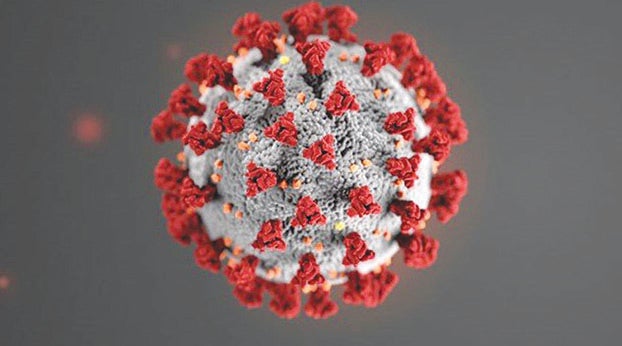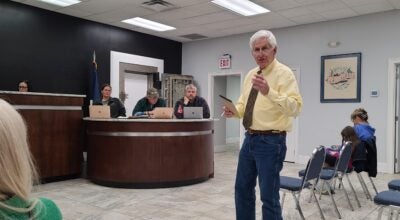Local health leaders share COVID experiences
Published 3:21 pm Wednesday, September 22, 2021
THE WOMEN’S NETWORK
News release
At a Sept. 14 meeting hosted by The Women’s Network, Daniel E. McKay, President and CEO of Ephraim McDowell Health, with Jason Dean, who handles the day-to-day operations for the COVID-19 response, and Brent Blevins, director of the Boyle County Health Department shared how they have been dealing with this crisis locally for the last 18 months.
McKay quoted news that Kentucky recently was number three for the percentage of COVID-19 cases across the U.S. and six of the worst 10 counties were in Kentucky. There was a peak in December 2020 and then a decrease in April and May, 2021. Everyone thought with vaccinations, the crisis was behind us. But then the delta variant hit, and now we are in an unprecedented surge.
Ephraim McDowell Health has admitted everyone needing hospitalization into its three facilities by closing some clinics and bringing that staff into the hospital, hiring nurses and health care workers in from out-of-state, increasing rates of pay for working extra shifts and now welcoming nine National Guards to help with non-clinical tasks. They reconverted offices which had earlier been an ICU unit back for extra ICU beds. They have continued to do elective surgeries whereas University of Kentucky and Baptist hospitals have had to stop. Unfortunately, 50 hospital workers lost their jobs because they refused to be vaccinated, but hospitals have to do their utmost to contain disease. Although we are in a surge now, some predict a plateau in the next two weeks and a decrease thereafter.
Blevins, of the Boyle County Health Department, discussed its contact tracing system. As of Dec. 23, 2020, his goal was to get as many health care workers, first responders and North Point staff vaccinated as possible, a total of 4,000. They managed the earlier surge by ramping up contract tracing staff and working 14-hour days with Mary Beth Touchstone ably organizing it. However, this greater surge of the delta variant has overwhelmed their ability to do as much follow-up with those who contract the disease. He commended the schools within the county for their cooperation and keeping the health department informed of their plans.
When asked if either of them had ever experienced anything as bad as this pandemic, both men definitely hadn’t. The delta variant is so infectious and whom it strikes and how severely seems random. Based on the data, McKay said that whoever could, should get vaccinated. Masks, social distancing and hand-washing continue to be important. McKay has seen reports of critically ill, unvaccinated patients who wish they had been vaccinated and were urging others, especially family, to do so. Unfortunately, due to misinformation spreading, COVID-19 vaccinations have been as risky to discuss as politics and religion — and both these areas have been mixed up with individual decisions to refuse vaccination. But vaccination rates are slowly improving.
Participants also asked how they could help during this pandemic. Susan Weston was appreciated for the graphs she puts on Facebook to show the way COVID-19 statistics are trending. When bosses go into work and say, “For the next couple of weeks, let’s all wear masks,” that helps. McKay said that the large prayer group that came to the hospital recently was greatly appreciated, as well as the personal notes, candy and treats left for the hospital staff, who are working so hard, and are saddened and often exhausted.
Alane Mills, Host and Co-Chair of The Women’s Network of Boyle, thanked these health professionals for their leadership and for informing us about local health efforts to meet the immense challenges of the COVID pandemic.







